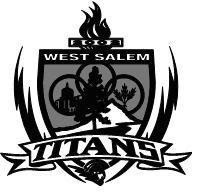Tuesday 5th per. OR Thursday 7th per. (scheduling days)
Answer THREE of the following questions (your choice)
What does the line "A true war story is never moral” mean?
Could this book of stories be considered a "true war story"? Explain.
How does the death of Curt Lemon compare to the deaths of other men from Tim's prospective?
In chapter 7, O'Brien relates a number of episodes. What makes these episodes seem true? Or, to put it another way, how does O'Brien lull you into the belief that each of these episodes are true?
Why is the baby water buffalo scene more disturbing than the death of one of O'Brien's platoon members, Kurt Lemon?
Finally, O'Brien says that "none of it happened. None of it. And even if it did happen, it didn't happen in the mountains, it happened in this little village on the Batangan Peninsula, and it was raining like crazy..." If O'Brien is not trying to communicate historical fact, what is he trying to communicate? Why change the details? What kind of truth is he trying to relate, and why is this truth set apart from historical truth? Is it OK that this "true" war story may or may not be entirely true?
Read “The Man I Killed” and “Ambush”
Journal Entry #2:
Describe an early childhood memory (10 or more years ago). At the end, decide whether you think your memory is accurate or a bit vague. Does this make it feel less real? Why or why not?
skip to main |
skip to sidebar

Books I have read recently:
- Espresso Shot by Cleo Coyle (series #7)
- Once Bitten Twice Shy by Jennifer Rardin (series #1)
- Letters to a young contrarian by Christopher Hitchens (nonfiction
- Tomato Girl by Jayne Pupek
- Greywalker by Kat Richardson (series #1)
- The Careful Use of Compliments by Alexander McCall Smith
- Living the 7 Habits by Stephen Covey (nonfiction)
- The Shack by William P. Young
- Lipstick Jihad by Azadeh Moaveni (nonfiction)
- Wicked by Gregory Maguire
- Inkdeath by Cornelia Funke (series, #3)
- Brisingr (Eragon Inheritance series #3)
Blog Archive
-
▼
2009
(43)
-
▼
February
(12)
- SNOW DAY! We had school, but many students were ab...
- We discussed "Night Life" and then segued into the...
- <?xml:namespace prefix = o />We read "Dentist," "S...
- NOTE: Due to scheduling sessions this week, this l...
- Tuesday 5th per. OR Thursday 7th per. (schedulin...
- President's Day--NO SCHOOL/No all-meet day this week.
- After answering questions on the reading homework,...
- Quiz over "Spin" and "Love." See Mrs. Evans for ma...
- Define and discuss the term "spin" and the concept...
- Check out the novel The Things They Carried by Tim...
- In class pre-reading exercise:What are the things ...
- Semester 2 Begins!
-
▼
February
(12)